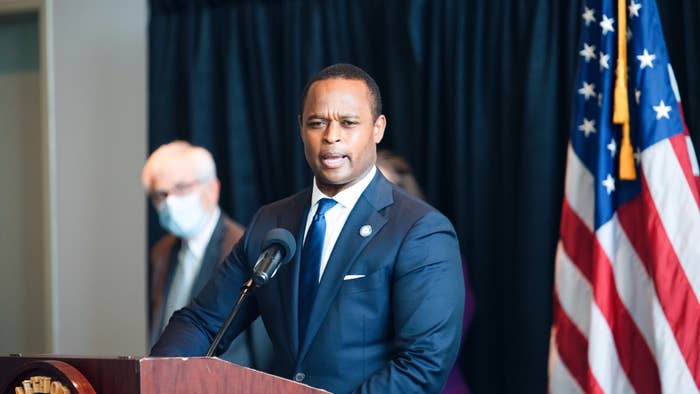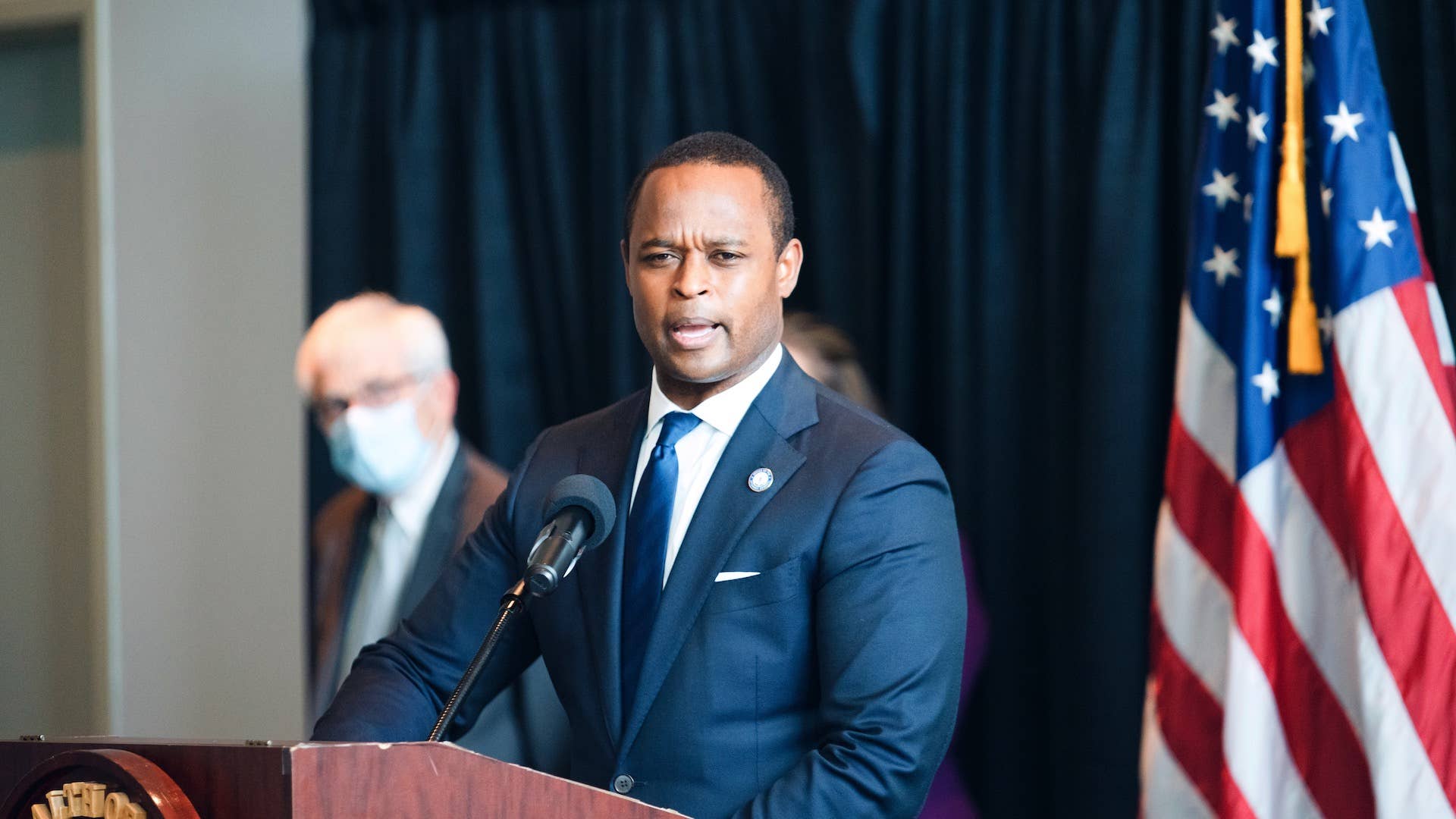
The recording of the grand jury proceedings in the Breonna Taylor case will be released this week, possibly shedding more light on the panel's controversial indictment of an ex-Louisville officer.
Kentucky Attorney General Daniel Cameron announced the release on Tuesday, about a day after an anonymous grand juror filed a motion that suggested the AG misrepresented deliberations to the public. According to CNN, the juror requested all case-related recordings, transcripts, and reports of the grand jury be released, and asked permission to publicly speak on the proceedings in an attempt to let the world know what was—and what wasn't—presented to the jury.
Shortly after a Jefferson Circuit Judge granted the requests, Cameron confirmed the recording would be released Wednesday. He and his office opposed the move, arguing such a release could compromise the case's ongoing federal investigation.
"The Grand Jury is meant to be a secretive body," Cameron said in a statement to CNN. "It's apparent that the public interest in this case isn't going to allow that to happen. As the special prosecutor, our team has an ethical obligation not to release the recording from the Grand Jury proceedings, and we stand by our belief that such a release could compromise the ongoing federal investigation and could have unintended consequences such as poisoning the jury pool. Despite these concerns, we will comply with the Judge's order to release the recording on Wednesday."
The grand jury's verdict in the Taylor case fueled public outrage, as none of the three defendants were indicted on homicide charges. Taylor was fatally shot on March 13 during a botched raid of her apartment. Ex-Louisville officer Brett Hankison, Sergeant Jonathan Mattingly, and Detective Myles Cosgrove had executed a no-knock warrant in the middle of the night as part of a narcotics investigation. Taylor was in bed sleeping alongside her boyfriend, Kenneth Walker, at the time officers barged into her home.
Walker, a licensed gun owner, allegedly fired a warning shot to scare what he believed to be intruders. Officers fired back and ultimately shot Taylor eight times. She was pronounced dead at the scene.
Mattingly and Cosgrove were not hit with any charges, but Hankison was indicted on three counts of first-degree wanton endangerment because he had fired into a neighboring apartment during the shootout. Hankison has pleaded not guilty to all three counts.
Attorneys for Taylor's family condemned the verdict and have accused Cameron of failing "to present a comprehensive case that supported justice for Breonna." It's alleged that the jury was not given the option to pursue criminal charges against Mattingly and Cosgrove. There are also question on whether the jury heard statements from Taylor's neighbors who claim they did not hear officers identify themselves before Walker opened fire.
"This is something where the juror is not seeking any fame, any acclaim, any money," Kevin M. Glogower, the attorney representing the anonymous juror, told the New York Times. "I think the point of the whole action is to get more into the narrative. It’s not really about changing the narrative, it’s about opening it up to a more full truth for everybody to see."

